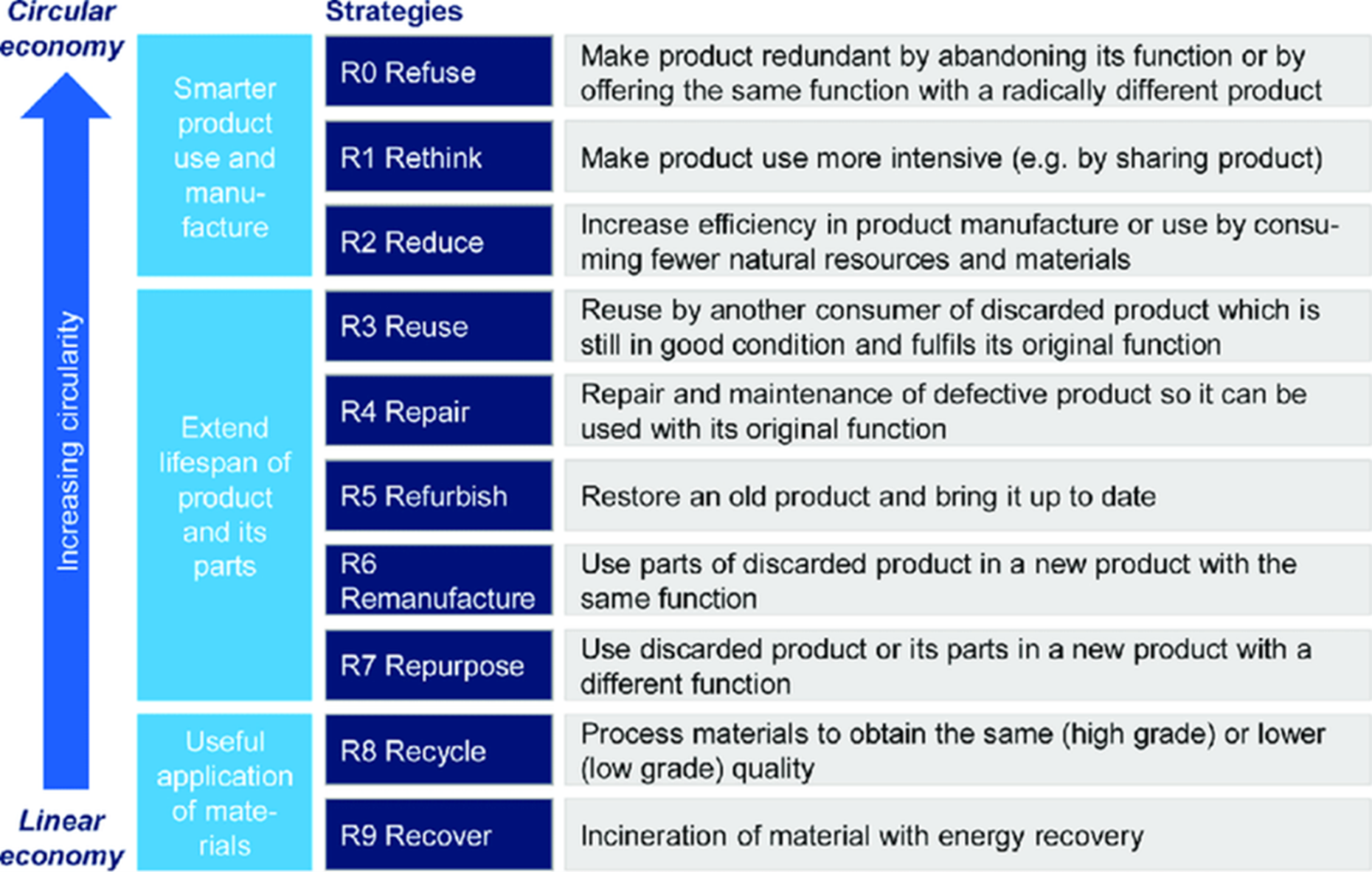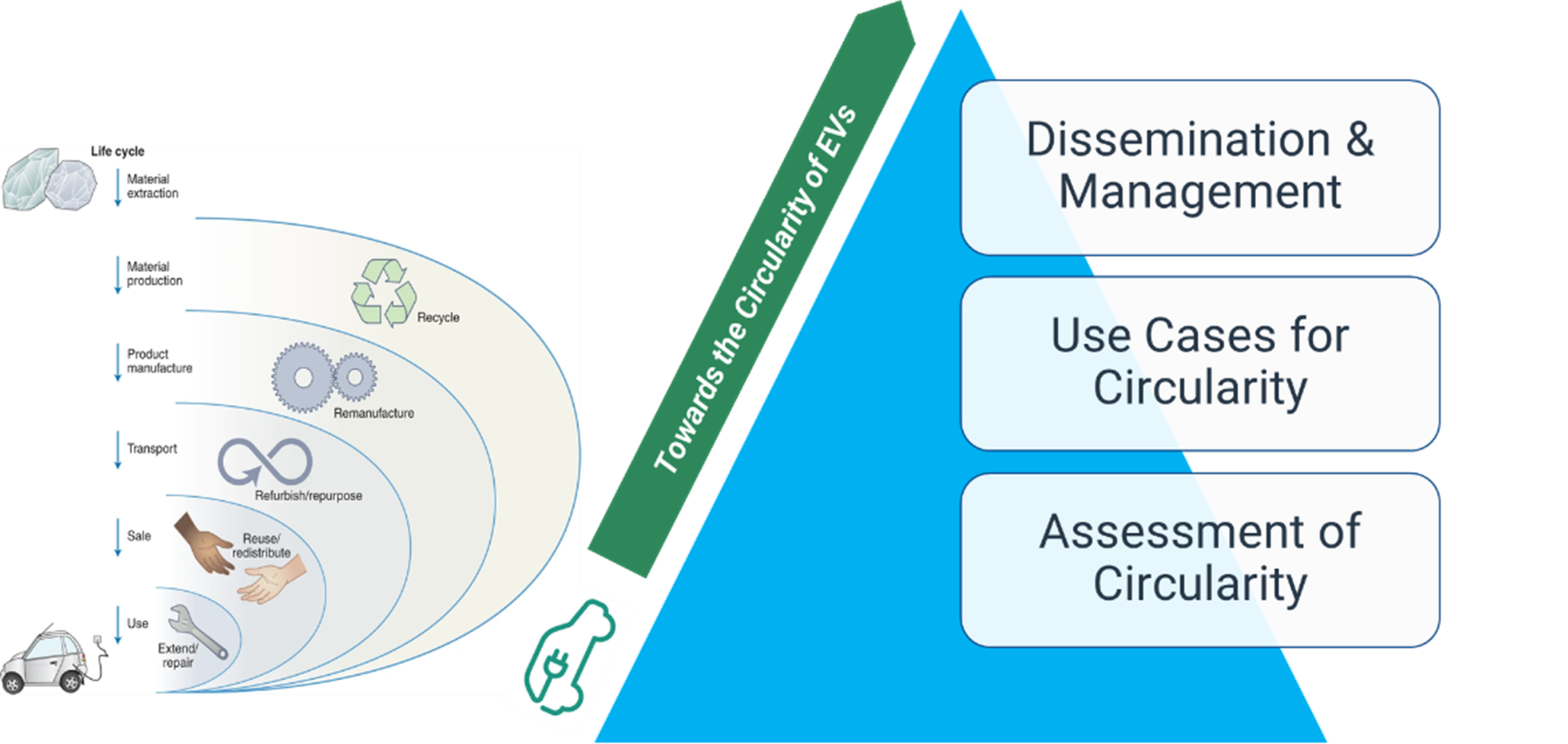IEA EV Task 52: EVs and Circularity
Short Description
Introduction
The implementation of circular economy aspects in all economic activities is strongly increasing in the development and production of (new) products. Electric vehicles (including their components) have specific challenges to achieve circularity that need to be identified and solved. Circular economy issues are relevant at all stages of the life cycle - production, use and end-of-life, so circular economy is closely linked to life cycle assessment (LCA).
The steps towards a more circular economy are achieved through the 10 R's - Refuse, Rethink, Reduce, Reuse, Repair, Refurbish, Remanufacture, Repurpose, Recycle and Recover (Fig 1).
Objectives
The goal is to analyse, discuss and document the main challenges and opportunities for electric vehicles and their different components towards reaching circularity. Recommendations and actions to reach circularity of EVs for decisions makers and stakeholders in industry, government and research are identified and documented.
The task starts with an analysis of the current aspects of circularity issues of EVs today, and then possible future developments to increase circularity will be analyzed and assessed.
Task Management
The working method is described below and shown in Fig. 2:
Possibilities and case studies to assess circularity
The analysis includes
- Definition/description of circularity
- Collecting and analyzing EV-country´s circularity strategies (e.g. Austrian Circularity Strategy)
- Summary and synthesis of national circularity strategies in relation to EVs
- Application of the 9 R´s to EVs and its components
- Possible methods to assess circularity and intensive discussion
- Practical application of circularity assessment to EVs and selected components
- Case studies on circularity assessment of EVs
Use cases for circularity
The work comprises:
- Overview on use-cases for circularity following the 9 R´s
- Three primary use-cases suggested, but open for additional contributions
- Workshops 'Use cases from industry and research' for practitioners involvement
- Identification of industrial and research activities, gap analysis
- Methods and technologies to improve circularity of EVs
- Potentials for improved dismantling, sorting, recirculation of materials
- Use of secondary materials
- Summary on barriers and opportunities
Dissemination & Management
The following activities are planned:
- Key policy messages
- Contributions to EV dissemination, e.g. annual reports, newsletters
- Workshops
- Presentations & publications e.g. EVS
- Updates on Task progress at ExCo meetings
- Final report
Expected results
The expected results are:
Assessment of circularity
- Summary and synthesis of national circularity strategies
- Working paper on methods to assess circularity
- Case studies on circularity assessment of EVs
Use cases for circularity
- Summary of workshops
- Write-up and Infographics
Dissemination & management
- Contributions to Annual Reports, webpage, newsletter
- Publications & presentations
- Final report
Austrian contribution
Austria is the Task Manager as decided by the ExCo members in October 2023. Austria leads the focus areas "Opportunities and case studies for assessing circularity" and "Dissemination activities and task management" and contributes to the "Circular economy use cases".
Participants
Austria (Operating Agent, JOANNEUM RESEARCH), Germany (DLR), Norway (Institute of Transport Economics), Spain (IREC), USA (ARGONNE)
Contact Address
Gerfried Jungmeier
JOANNEUM RESESARCH
LIFE-Institut für Klima, Energiesysteme und Gesellschaft
Waagner-Biro-Str 100
8020 Graz
Tel.: +43 316 876 7630
E-Mail: gerfried.jungmeier@joanneum.at


